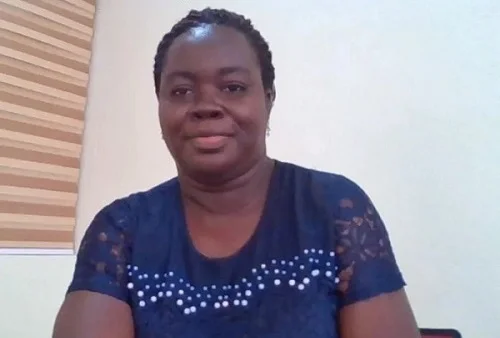Hot!
Research reveals: Sex for sanitary pads cause of teenage pregnancy in Wa East

A research conducted in some parts of the Upper West Region relative to teenage pregnancy has produced a “very worrying result” which should be of concern to all.
It is noted that the inability of some girls in the Wa East District of the region to raise money for sanitary pads has compelled them to engage in premarital sex in exchange of money to buy the pad.
This practice has disturbingly resulted in high rate of teenage pregnancy in the area.
The research which was titled “Adolescent Sexual and Reproductive Health in the Wa East District of the Upper West Region: A synthesis of Research Evidence” was conducted by the Regional Youth Parliament with support from Plan International Ghana.
It was revealed that 83 percent of adolescent-girl respondents who participated in the research said they indulged in premarital sex with males for money to buy sanitary pads.
According to the study, some of the girls were not provided with pads by their parents who had relegated their responsibilities to the backyard making it difficult for them to get supply of their basic needs such as sanitary pads.
Explaining the details of the study to The Spectator Newspaper at Wa, the Speaker of the Youth Parliament, Mr James Baba Anabiga said that the study included 300 respondents comprising parents and guardians as well as adolescent girls in the community.
He said most of the girls confessed to have slept with a men in exchange of money to buy sanitary pad or were still sleeping with men for money to buy such basic necessities.
“When we have about 57 per cent of parents reneging on their responsibilities due to poverty or sheer negligence, then we will have such a situation at hand because menstruation is a biological consequence which happens every month whether the girl is prepared for it or not”, he said.
He explained that some of the girls said they had to stay away from school during menstruation and it affected their studies but with the help of the men, they were able to buy sanitary pads and ensured that they stayed in school.
“But to what extent is this feasible when our study uncovered that 41 per cent of girls who indulged in such premarital sexual activities ended up getting pregnant, and out of that number, 34 per cent are married off at very tender ages whereas eight per cent were compelled by the circumstances at hand to drop out of school”, he lamented.
Mr. Anabiga again said that in spite of efforts to increase sexual education to adolescent girls, most parents did not appreciate the fact that some of their daughters were exposed to sex at very early stages of their life until they showed up pregnant.
“Wa East is one of the poorest districts in the region yet existing data and media reports indicate that early and unprotected sexual practices by adolescents are a common trend that exposes them to many reproductive health challenges such as unplanned teenage pregnancies, school dropouts, unsafe abortion, and sexually transmitted infections and diseases (STIs/STDs)”, he said.
He said the study suggested that to help solve the problem, parents, District Assembly, Member of Parliament for the area as well as government should initiate moves that would help support the girls and protect them from unscrupulous men.
“Parents must perform their responsibilities to the core, bearing in mind that each child they bring forth is their responsibility; the district assembly and office of the MP should support girls with sanitary pads as well as provide funding for programmes aimed at educating the girls on sexual and reproductive health”, he said.
On the whole, the speaker of the Youth Parliament called on government to introduce free sanitary pad policy to ensure that girls in rural and deprived communities had access to the sanitary towels without having to pay for them as he believed such policies would save the girls from engaging in promiscuity in order to raise money for the pad.
From Lydia Darlington Fordjour, Wa
Hot!
Swedru All Blacks back to winning ways, Roshan humble King Faisal

Sekondi Rospak FC made it eight wins in eight successive home games after three second-half goals from John Amoah, Joseph Ntow and Stephen Anthony Kofi. John Amoah opened the scoring in the 55th minute after a barren first half. Joseph Ntow added to the tally in the 56th minute before Stephen Anthony Kofi rounded things up in the 74th minute to give Rospak a 3-0 win over former Premier League side King Faisal.
Elsewhere at Swedru – leaders Swedru All Blacks humbled PAC Academy in an emphatic 2-0 win. Zayat Bubakari scored first for Swedru All Blacks in the 27th minute before Rudolf Junior Nana Kwasi Mensah made it 2-0 in the 34th minute. Swedru All Blacks are top of the table with 36 points – 4 points ahead of second placed Rospak FC.
Meanwhile, Former Premier League side Cape Coast Mysterious Dwarfs recorded their fourth successive home victory after beaten New Edubiase United 2-1 at the Robert Mensah Park. Enoch Odoom struck first for Cape Coast Mysterious Dwarfs in the 19th minute but Steven Asante equalized for New Edubiase United before halftime. After the interval, Godfred Eshun scored from distance in the 65th minute to help Cape Coast Mysterious Dwarfs secure all the points.
Here are the results in Zone Two

Hot!
Cervical Cancer alert: Avoid sex at early age

The Programmes Manager of Non-Communicable Diseases (NCDs) of the Ghana Health Service (GHS), Dr Mary Efua Commeh, has advised young girls to avoid sex at an early age.
This, she explained, will give the cervix the opportunity to mature before they become sexually active.
“You need to delay what we call the first sexual intercourse as much as possible to give the cervix the opportunity to mature before the person becomes sexually active,” she said.
Dr Commeh stated this in an interview with The Spectator in Accra on Tuesday as a part of the Cervical Cancer awareness month.
According to her, cervical cancer was the second leading female cancer in Ghana with a total of about 3,072 cases annually, and out of that, 1,815 deaths are recorded, representing more than 50 per cent.
She indicated that “If young girls are going to be sexually active, then you need to talk to your parents about being vaccinated.”
She explained that vaccinating young girls against human papillomavirus (HPV) has been found to be a very effective way of preventing cervical cancer.
“There are countries that started HPV vaccination years ago and they are not seeing any cervical cancers now because they would have eliminated most of the high-risk HPVs in their women. So if the high-risk HPV is not there, then obviously the results on cervical cancers are going to go down,” she added.
Dr Commmey said the HPV vaccination is recommended for young girls aged nine to 14 years, adding that it had been found to be highly effective, not just for cervical cancers but for other HPV-related cancers, such as anal cancers, cancers of the vagina, genital warts, amongst others.
She further elaborated that the idea is to put up a barrier before the HPV comes in and that once a young female encounters it, she is already protected.
She also mentioned that for cervical cancers, the main cause is called HPV infection, saying generally, all sexually active women acquire HPV at some point in their lives.
However, the Programmes Manager of NCDs at the GHS mentioned that the body has a way of clearing the HPV, explaining that it is a natural mechanism that goes on, unfortunately, there are a few women whose HPV persists.
Moreover, she noted that the numbers for Cervical Cancer tend to be much higher because at times, clients would wait, and try all sorts of medications before they finally report to the health facility saying “we actually lose some women before they get to the hospitals with over 75 per cent of the cases coming in its third and fourth stages.”
Dr Commey, therefore, called for public awareness while ensuring the availability of information for prevention and control.
By Jemima Esinam Kuatsinu







